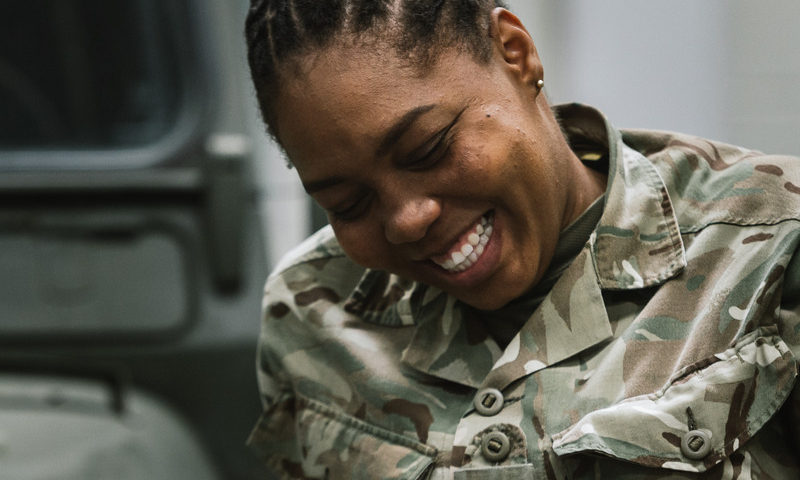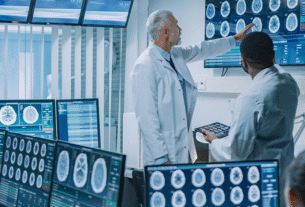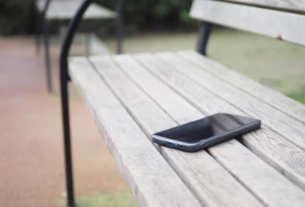The Surgeon Dismissed Her — Until the SEAL Spoke Her Call Sign and the Room Fell Silent
“Sometimes, the battlefield doesn’t end when the war does.”
“Get your hands off my patient, nurse. You’re in way over your head.”
The words sliced through the chaos like a scalpel.
Captain Rachel “Valkyrie” Torres didn’t even look up. Her gloved hands were buried in a soldier’s open chest, blood pooling faster than anyone could suction. Around her, the field hospital was a storm of shouting medics, metallic clatters, and the desperate rhythm of lives on the edge.
“I said step aside,” the surgeon barked again — tall, silver insignia flashing under the tent lights. His tone was full of authority, but empty of understanding.
Rachel didn’t move. Her voice, calm and unwavering, cut right back.
“I can save him.”
The surgeon scoffed. “You’re not even qualified to be here.”
And then, from the table, came a broken whisper.
“Valkyrie… that you?”
The chaos froze. Every head turned toward the bloodied soldier, his eyes barely open, his breath ragged.
Rachel finally glanced down. “Stay still,” she murmured. “You’ve lost too much blood.”
The surgeon blinked in confusion. “What did he just call you?”
The soldier gave a weak, trembling smile. “You’re the one who got us out of Helmand… Night Op. Seven men down. You flew through mortar fire.”
Rachel’s eyes didn’t leave her work. “Hold pressure,” she ordered. “Now.”
The room had gone silent except for the hum of machines and the fading echoes of disbelief.
The surgeon stepped back, his arrogance dissolving into shock. “Wait… you’re Valkyrie?”
Rachel didn’t look up. “Are you going to let me save this man,” she said evenly, “or do I need to do it one-handed while arguing?”
No one said a word.
For the next six minutes, there was only precision. Calm. Focus.
Rachel worked like a machine built from instinct and memory — clamping the arterial bleed, suturing the tear, keeping her patient tethered to life by sheer will and skill.
When the heart monitor found its rhythm again, the whole tent exhaled as one.
Rachel peeled off her gloves, crimson to the wrists, and finally looked the surgeon in the eye.
“I was a combat pilot for twelve years,” she said. “Thirty-eight extractions. Six under direct fire. Three where I was the only one left standing. Valkyrie wasn’t just a nickname — it was a call sign. Because I brought the dying home.”
Gasps rippled through the tent. A young private near the back whispered, “She’s the one from the Kandahar mission.”
The surgeon’s face went pale.
Rachel continued, her tone steady as the hum of the generators.
“I retired after a crash that shattered my spine. Took me two years to walk again. Med school didn’t want me. So I learned in the field — from the ones who didn’t have time to wait for permission. I don’t wear white coats. I wear scars.”
She wasn’t bragging. She was telling the truth the war had carved into her.
Rachel had never dreamed of becoming a medic. Her hands had been made for flight controls, not forceps. She lived for the roar of engines and the impossible blue of the Afghan sky.
But one night over Kandahar changed everything.
Her Black Hawk was hit — tail rotor gone, smoke pouring, alarms screaming. She crash-landed in fire and sand. One medic was dead on impact. Four soldiers were bleeding out. Her back broken, legs numb, she dragged herself across twisted metal and wreckage, using her training and sheer fury to keep every man breathing until rescue came.
When they found her, she couldn’t walk — but five others could.
That was the day Valkyrie, the pilot, died.
And Rachel, the medic, was born.
Back in the present, the soldier she’d just saved squeezed her hand weakly. His voice was rough but strong.
“You saved my team once. You shouldn’t be down here. You should be leading this tent.”
Rachel smiled, tired but steady.
“I’m exactly where I need to be.”
The surgeon stepped forward again, but this time his tone had changed — no command, no pride, only humility.
“I judged you by your uniform,” he admitted. “By your lack of rank, of title. But you’ve earned more than any of us could in a lifetime.”
Rachel nodded once.
“Next time,” she said quietly, “before you tell someone to step aside — ask about their hands, not their résumé.”
No one argued.
By sunrise, the field hospital had changed.
Every cot, every whisper, every medic carried one word like a banner — Valkyrie.
Not as legend. As proof.
From that morning on, the surgeon consulted her on every critical case. Not because of guilt — but respect. She had shown them something that couldn’t be taught in a classroom or stitched into a uniform: grit in the fire, and grace under pressure.
The SEAL stabilized. When he was lifted onto the evac chopper, he caught her eye and raised a trembling salute.
“You ever need backup,” he said. “My unit’s got your six. Always.”
Rachel returned the salute without words.
As the helicopter disappeared into the horizon, dust swirling in the dawn light, she turned back toward the tent.
Another stretcher was being rushed in. Another life. Another fight.
No applause. No spotlight. Just purpose.
Because real heroes don’t chase recognition — they chase heartbeat monitors and fading pulses.
They don’t talk about saving the world.
They just keep showing up to do it.
And sometimes, the ones they underestimate most…
are the ones who carry the power to change everything.
The Surgeon Dismissed Her — Until the SEAL Spoke Her Call Sign and the Room Fell Silent
“Sometimes, the battlefield doesn’t end when the war does.”



